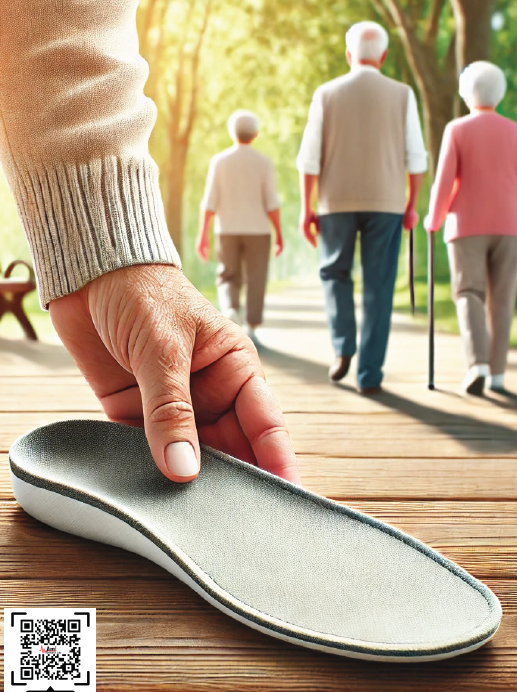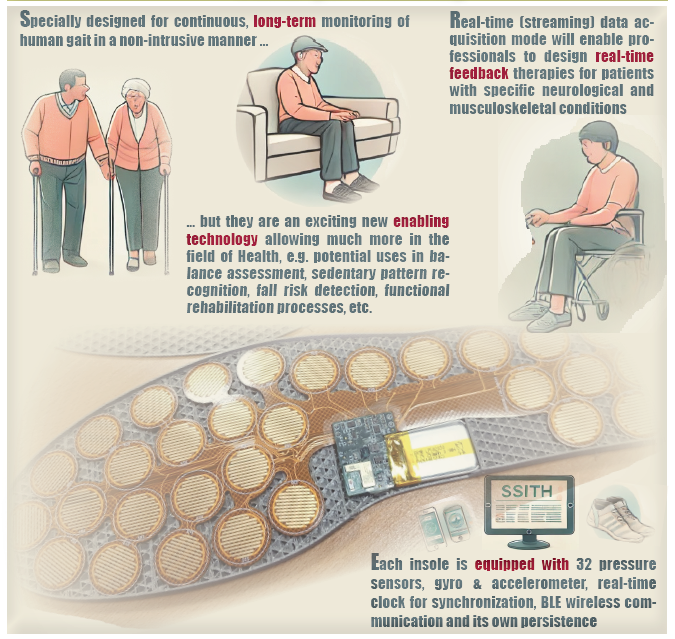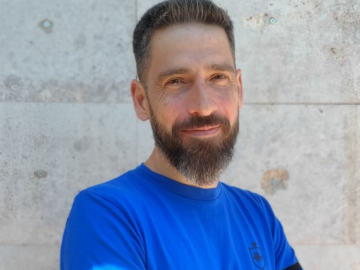
2022 - 2025
SSITH: Self-recharging sensorized insoles for continuous and long-term monitoring of human gait.
The goal is to create a product for quantitative gait analysis (QGA). Human gait is a complex and cyclic pattern of simultaneous movements that requires the coordinated interaction of the main parts of the nervous, musculoskeletal and cardiorespiratory systems. Thus, human gait analysis is an essential functional diagnostic tool for the early detection and assessment of disorders and pathologies, although its use can be innovatively extended to other contexts, such as sports.

Overview
The wearable prototype will be aimed at collecting, in a non-intrusive manner, raw data on human gait in continuous monitoring tests and in the course of the wearer’s “day-to-day” life, without further intervention on their part. The proposed wearable will consist of two sensorized insoles capable of acquiring inertial and plantar pressure data. Acquiring these in a prolonged manner implies knowing the time at which a data sample was taken from one insole with respect to another, and therefore their synchronization is critical. In addition, it is necessary to adopt a long-term, continuous monitoring philosophy in order to observe patterns and events that can only be detected over an extended period of time. Aligned with this, it is necessary to integrate energy harvesting techniques to increase the autonomy of the wearable device

Research Team

Dr. Ramón Hervás

Dr. José Bravo
- Jesús Fontecha (UCLM, Computing Engineer)
- Javier Navarro (UCLM, Geriatrician)
- Iván González (UCLM, Computing Engineer)
- Tania Mondéjar (UCLM, Psychologist)
- Manuel Noguera (UGR, Computing Engineer)
- Kawtar Benghazi (UGR, Computing Engineer)
- Ángel Ruiz Zafra (UGR, Computing Engineer)
- Francisco Pascual Romero (UCLM, Computing Engineer)
- Eusebio Angulo (UCLM, Computing Engineer)
Results
Direct Memory Access-Based Data Storage for Long-Term Acquisition Using Wearables in an Energy-Efficient Manner
by Cosmin C Dobrescu, Iván González, David Carneros-Prado, Jesús Fontecha, Christopher Nugent
Sensor 2024, 24(15), 4982.
This study introduces a lightweight storage system for wearable devices, aiming to optimize energy efficiency in long-term and continuous monitoring applications. Utilizing Direct Memory Access and the Serial Peripheral Interface protocol, the system ensures efficient data transfer, significantly reduces energy consumption, and enhances the device autonomy. Data organization into Time Block Data (TBD) units, rather than files, significantly diminishes control overhead, facilitating the streamlined management of periodic data recordings in wearable devices. A comparative analysis revealed marked improvements in energy efficiency and write speed over existing file systems, validating the proposed system as an effective solution for boosting wearable device performance in health monitoring and various long-term data acquisition scenarios..







